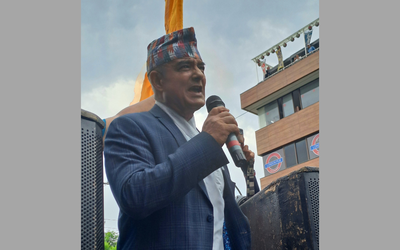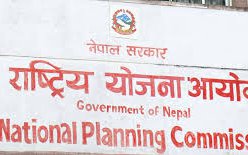More on News





Delhi laid out red carpet for deputy prime minister Bijaya Kumar Gachchhdar within days of Chinese premier Wen Jiabao’s visit to Kathmandu and arranged high-profile meetings including with the prime minister Manmohan Singh at a very short notice.
Alarmed by the “guerilla” style four-hour sojourn of one of the most powerful figures of its communist neighbour, Delhi wanted to get the first-hand account of what actually transpired between the Dragon state and the nascent Himalayan republic.
India’s China concern is not limited to its northern neighbour, though. Eastern neighbour Myanmar is of no less concern to it. As the ‘nominally’ civilian ruled Myanmar opens up to reforms, India, one of its most significant strategic neighbors has lauded the step along with other western democracies.
India, in the recent past had faced criticism for remaining silent on human rights issue and supporting the military government in the country. It had to with the growing Chinese influence there. Changing its tack, India began to ‘engage’ the iron-fist Myanmar regime. With the Than Sein led government releasing political prisoners including pro-democracy leader Aang Sang Syu Ki and announcing civil rights to the people, the country, now, looks all set to take a new path. This has resulted in a change in the Indian perspective as well. The ties between the two countries are expected to grow even stronger.
The relation between the two countries has witnessed major changes since both the countries achieved independence. Formerly a British colony, Myanmar became independent in 1948; a year after India got its own. A democratic government came into power, with which the government of India shared cordial relation. However, in 1962, a coup d’état led to a direct army rule in the country causing a strain in the bilateral ties. India condemned the developments and Myanmar was quick to reiterate by ordering the expulsion of the Burmese Indian community, many Indians who had migrated to the country during the British rule. India was also very vocal on the brutal suppression of the 1988 uprising. But later on, following a ‘Look East’ policy and realizing the growing influence of China on the region, India took a complete turn in its stance. It lent its hand of friendship towards the junta. But its current backing for the democratic developments is clearly aimed at gaining upper hand over China in the region.
New Delhi now believes that a democratic institution in the county will help to keep the Chinese influence at bay. Last year during a visit by the reformist President Than Sein, Manmohan Singh congratulated him for the transition towards a democratic government and offered all necessary assistance in further strengthening the transition in an inclusive and broad-based manner. India has also announced a $500 million line-of-credit to Myanmar bringing the soft loan assistance to a whopping $800 million. It has pledged to help the poverty stricken country in fields of health, science and technology and agreed on enhancing effective cooperation and coordination between the security forces of the two countries in tackling insurgency and terrorism. Myanmar also invited further investment from Indian state-run and private sector companies in off-shore and on-shore blocks and construction of natural gas pipelines. Interestingly energy is one sector where China overtakes India in the county. Officials from the two countries have also been asked to look at expanding air links, railway, and ferry and bus services.
A democratic Myanmar would also mean lesser pressure on India from western democracies, who earlier criticized India over the issue. Last year, have stronger ties with China would also help India gain advantage in buying natural gas from the gas rich east Asian country. It is no secret that how vital it is for India to win the race against China in its relation with its important strategic neighbour which shares its border the vulnerable north east part India, where India suspects that the Chinese are funding the insurgents.
As China cozies up to its neighbours in a bid to bolster its super power status on the global stage, India’s concerns are only certain to grow by leaps and bounds in the days to come.






